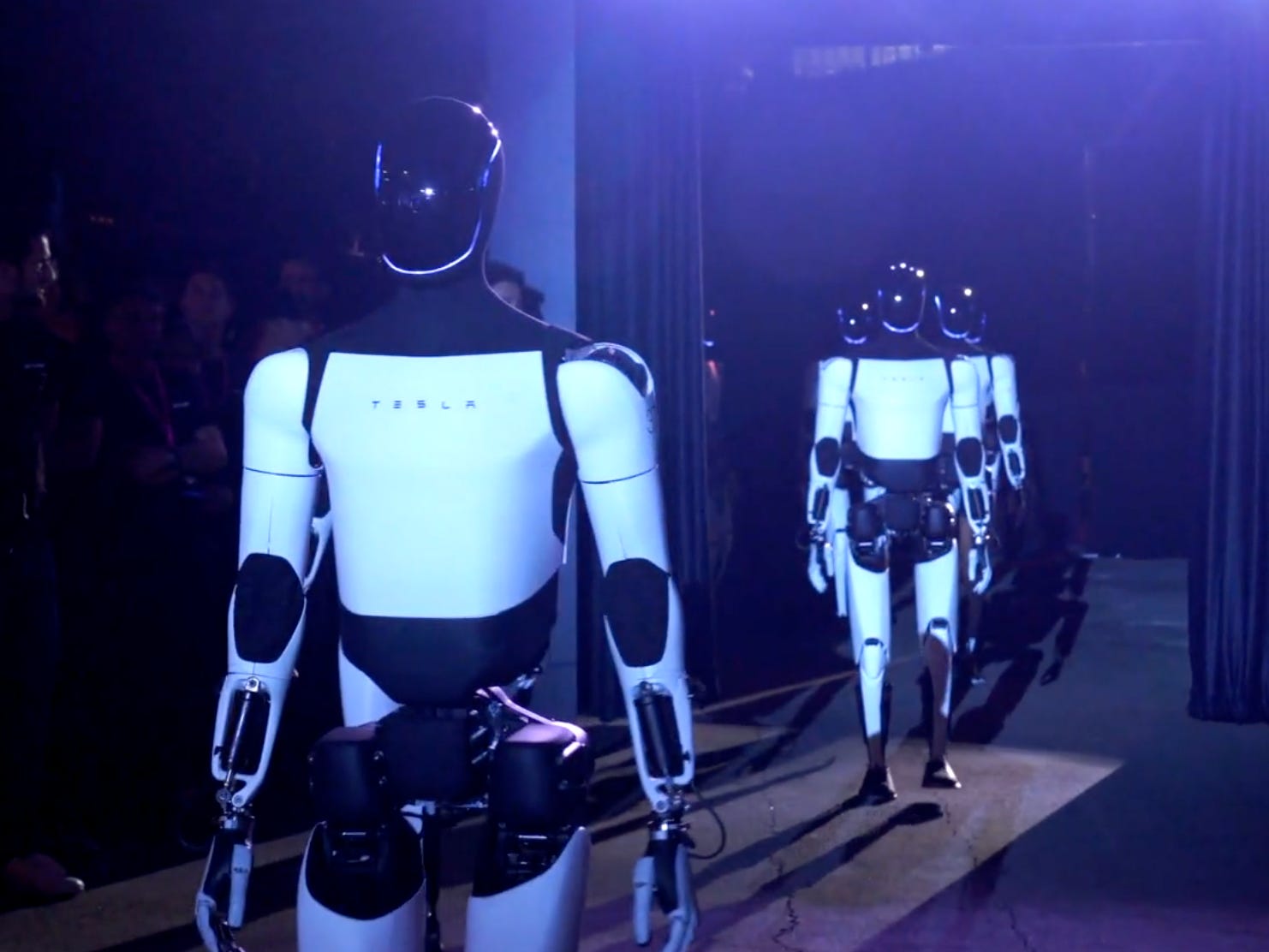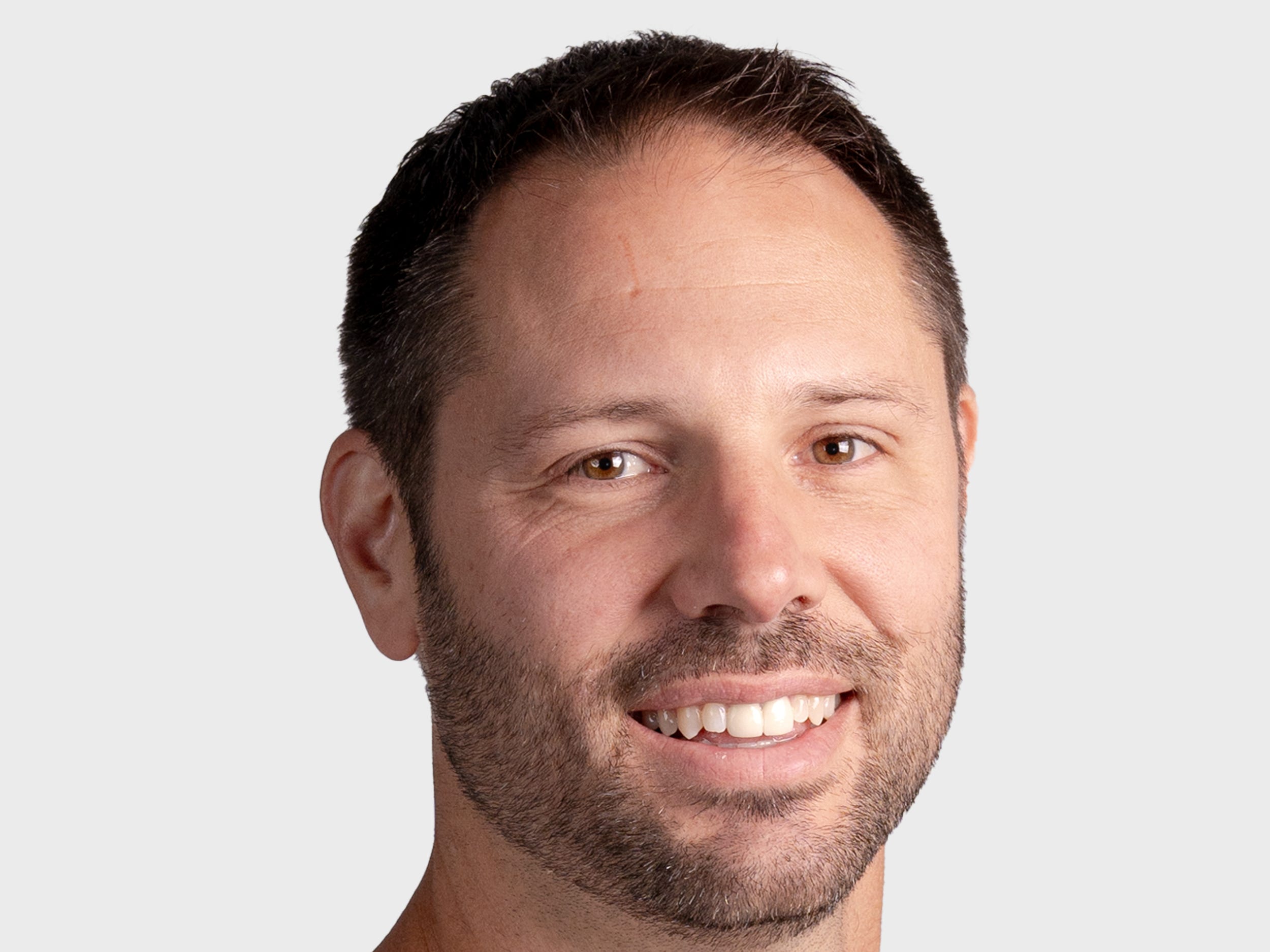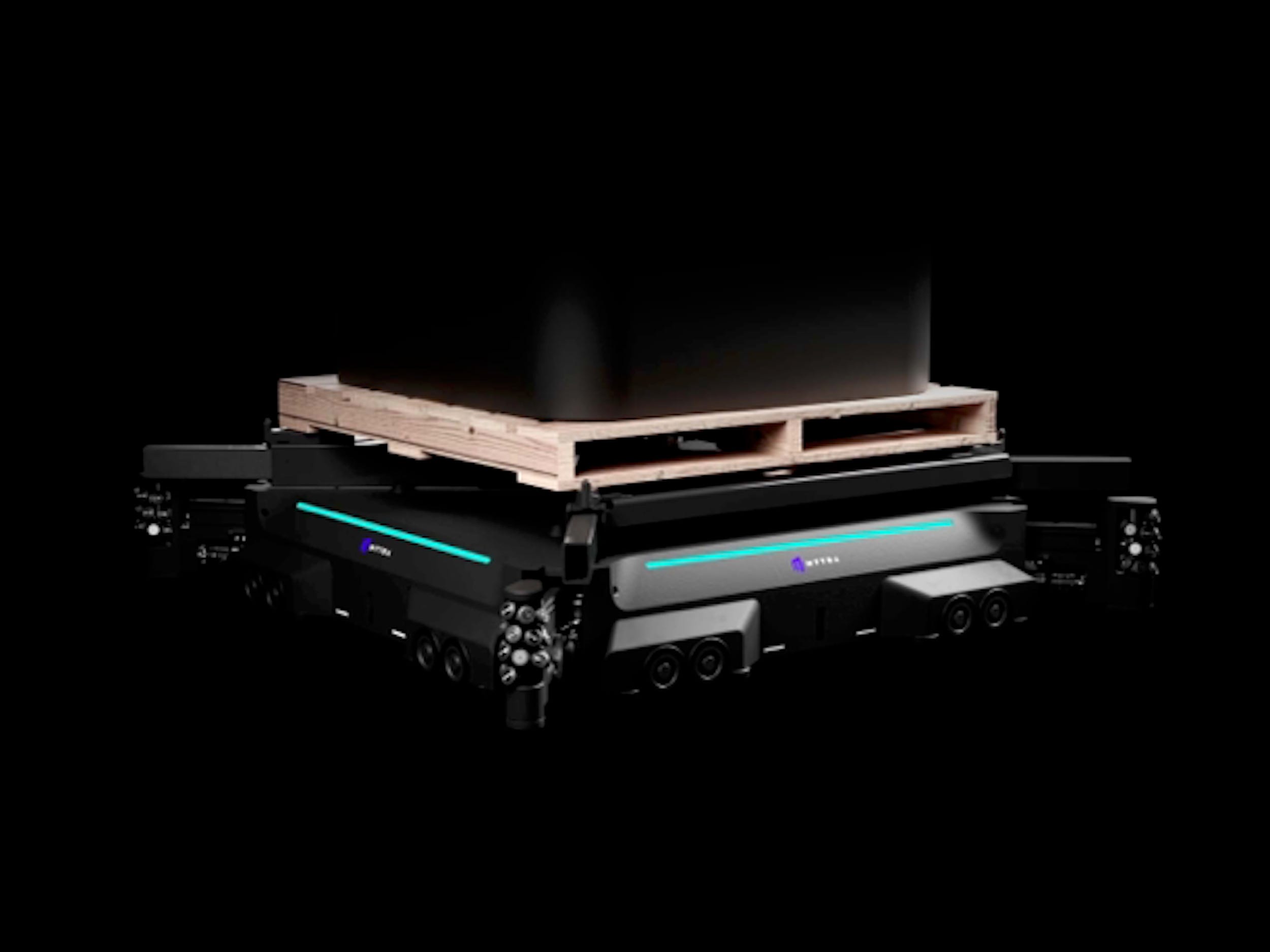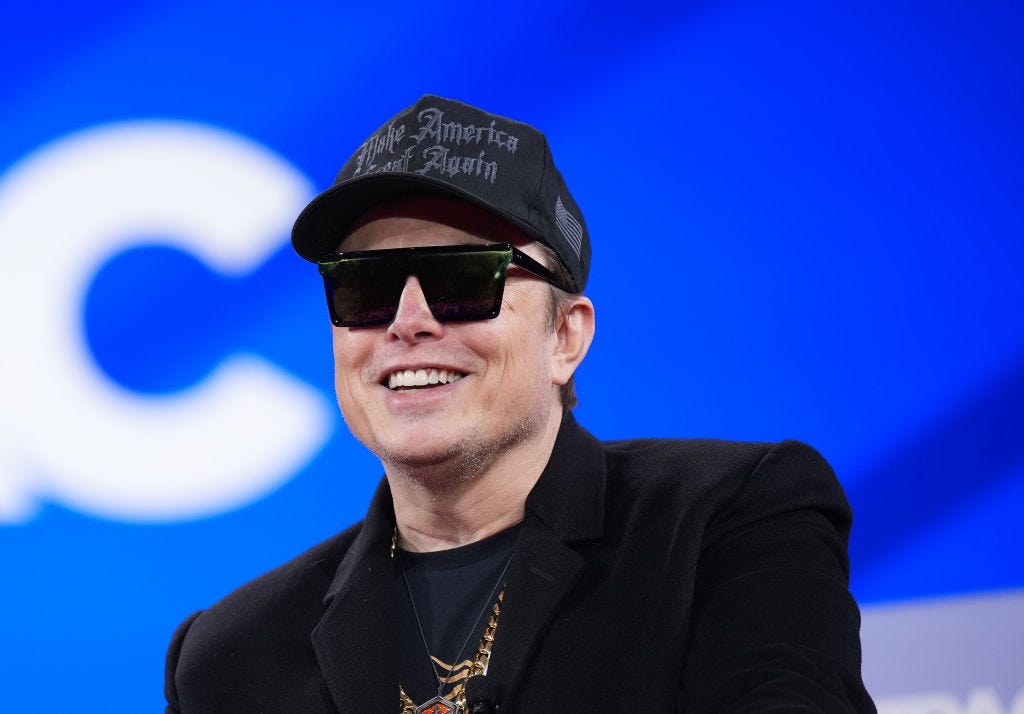
Screengrab from We, Robot livestream
Elon Musk dreams of Tesla’s Optimus robots working in huge numbers in factories — but not everyone is convinced.
Chris Walti, the former team lead for Tesla’s robot, told Business Insider that humanoid robots like Optimus were the wrong option for factory work.
Walti told BI that, although humanoid robots were a fascinating technology with enormous potential, human-shaped ones would be less effective in warehouses, logistics, and manufacturing.
“It’s not a useful form factor. Most of the work that has to be done in industry is highly repetitive tasks where velocity is key,” said Walti, who built the development team for Optimus.
Shortly after Walti spoke to BI, Musk told CNBC on Tuesday that Tesla expects to have thousands of Optimus units working in its factories by the end of the year, and said he was confident the company would be producing a million robots a year by 2030.
Musk has said Optimus, a 5-foot-8 humanoid robot that the company has said could be used for factory roles and as a mechanoid personal assistant, will be “the biggest product ever of any kind.”
Tesla has recently released videos showing Optimus dancing, cleaning, and taking out the trash.
But at the demo at the company’s robotaxi reveal in October, the Optimus robots that served drinks and interacted with attendees were later revealed to have relied on remote human operators.

Mytra
Tesla said last June that two Optimus robots were already working at one of its factories, though it did not specify their roles. Musk has previously said that Optimus could take over menial and dangerous tasks from human workers.
Tesla isn’t the only automaker exploring using humanoid robots in factories. BMW struck a deal last year with robotics company Figure to test robots at its South Carolina plant, and Chinese EV companies BYD, Xpeng, and Nio have also experimented with the technology.
Walti worked at Tesla for seven years before leaving in 2022 to found Mytra, which uses slab-shaped robots that can move in any direction to transport payloads across warehouses through giant, cage-like structures of “cells.”
Walti said these were “much simpler form factors” than humanoids.
He described humanoid robots as an engineering problem “multiple orders of magnitude” more difficult to solve than self-driving cars, because general-purpose robots like Optimus are designed to have a wider range of movements than a car on the road.
He said robotics was not yet advanced enough to deploy humanoid robots properly, adding they were “kind of a ninth-inning robotics problem, and we’re in the third inning.”
Walt said the human form “evolved to escape wolves and bears. We weren’t designed to do repetitive tasks over and over again. So why would you take a hyper suboptimal system that really isn’t designed to do repetitive tasks and have it do repetitive tasks?”
At Tesla, Walti was tasked with troubleshooting production bottlenecks as the automaker ramped up production of the mass-market Model 3 EV in 2017.

Mytra
Musk dubbed that infamously gruelling period “production hell,” and the CEO said he slept on the production floor of Tesla’s Fremont factory as the Model 3 ramp ran into problems.
Tesla’s ambitious plans to rely heavily on autonomous robots to build the Model 3 didn’t work as planned, and Musk later said in a post on Twitter, now X, that this level of automation was “a mistake.”

Andrew Harnik/Getty Image
“There was a very ambitious plan to automate a lot more than we probably should have, and it was clear the system was struggling,” said Walti, who said he worked for nine months with his team to design a simpler robotics system for the factory.
After building the automaker’s mobile robotics team, Walti became the senior manager in 2021 of the team building the “Tesla bot,” which would later become Optimus.
Walti saw the robot as “a side project” for Tesla at the time.
He said he was surprised when Musk began talking up Optimus as the company’s future, but added that it wasn’t surprising, as the billionaire “wants to push the boundary of innovation and tech.”
Tesla and Musk did not respond to requests for comment.
The post Elon Musk dreams of thousands of robots working in factories. Tesla’s first Optimus lead has doubts. appeared first on Business Insider.




